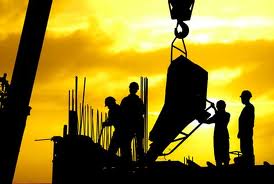September 28 – Organisers of the 2022 World Cup in Qatar are under fresh scrutiny over their treatment of migrant workers despite insisting for months that much work is being done to improve standards.
According to Human Rights Watch, the Qatari authorities are still not doing enough to protect migrant workers from the country’s extreme heat and humidity, even those working on World Cup stadiums.
Since controversially winning the right to host the 2022 World Cup in December 2010, Qatar has embarked on a massive infrastructure upgrade, including eight new or improved stadiums. Work on the latter is overseen by the Supreme Committee for Delivery and Legacy which insists it has taken steps to protect its 12,000 workers.
Qatar has introduced laws to prevent having to work outside between 11:30 am and 3:00 pm annually from 15 June to 31 August. But HRW says these measures do not go far enough.
“Limiting work temperatures to safe temperatures – not set by a clock or calendar – is well within the capacity of the Qatari government and will help protect hundreds of thousands of workers,” said HRW Middle East director Sarah Leah Whitson.
“Qatar sought the spotlight by bidding for the 2022 World Cup, brought in hundreds of thousands of migrant workers to build roads, stadiums, and hotels, and then shelved key recommendations from their own consultants to investigate migrant worker deaths.”
The author of HRW’s last report on the issue, Nicholas McGeehan, believes more than 2,000 migrant workers have died in Qatar since 2012, with heat stress being a major factor.
“The Qatari authorities’ failure to put in place the most basic protection from the heat, their decision to ignore recommendations that they investigate worker deaths, and their refusal to release data on these deaths, constitutes a wilful abdication of responsibility,” said McGeehan.
He called on FIFA, national associations and World Cup sponsors to demand a full explanation of all worker deaths.
“FIFA and national football associations should make clear they expect life-saving changes to law and practice that could set a Gulf-wide example of how to save construction worker lives now and in the future,” said McGeehan.
“They should also be demanding answers to two simple questions – how many workers have died since 2012 and how they have died?”
Responding to the HRW accusations, Qatar’s World Cup organisers said they acknowledged the concerns raised but refuted claims they have failed to protect workers on World Cup sites.
In a statement, the Supreme Committee for Legacy and Development said it was still trying to improve how it assesses heat-stress risk and has been consulting with international experts, including HRW, on how to do so.
It also restated that there have been two work-related fatalities and nine “non-work related deaths of workers on our projects”, events the Supreme Committee “profoundly regrets…and treats with utmost seriousness”.
The Supreme Committee added: “Our commitment to the health and safety of our workers will never diminish as we prepare to host a FIFA World Cup that will leave a true legacy for Qatar, the region and the rest of the world.”
Contact the writer of this story at moc.l1745543672labto1745543672ofdlr1745543672owedi1745543672sni@w1745543672ahsra1745543672w.wer1745543672dna1745543672

